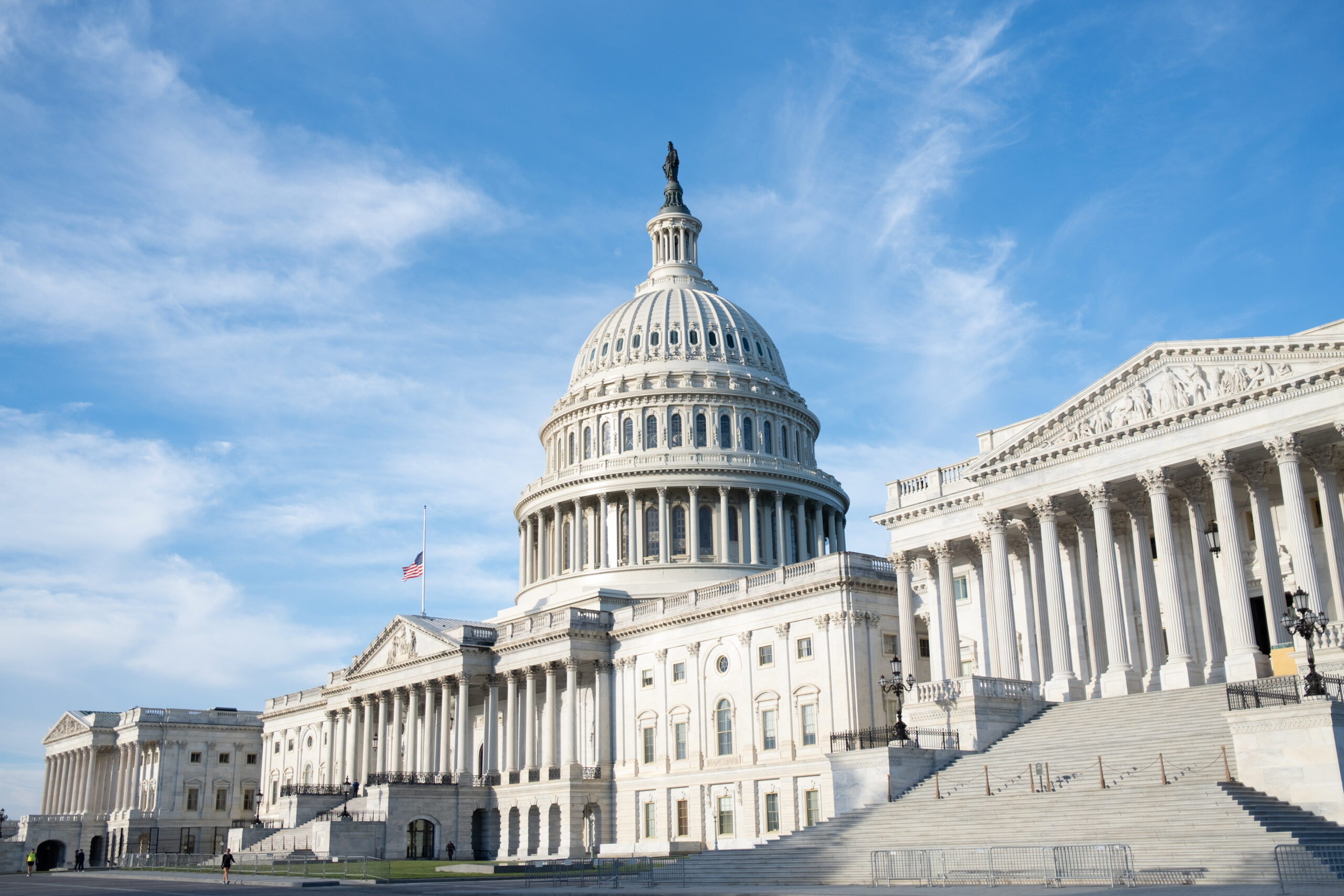
Summary
- In this week’s crypto policy roundup, the US Department of the Treasury’s Financial Crimes Enforcement Network has flagged CVC mixing to combat illicit actors such as cybercriminals or terrorist groups. Meanwhile, Europe has moved to the next phase of the digital euro project called “preparation phase.”
- The Council of the European Union also makes a move to adopt enhanced taxation cooperation while paving way for enhanced consumer safeguards.
- View the weekly crypto policy roundup on Twitter and LinkedIn.
FinCEN’s Crackdown on Convertible Virtual Currency Mixing
The US Department of the Treasury’s Financial Crimes Enforcement Network (FinCEN) has put forth a Notice of Proposed Rule Making (NPRM) that flags international Convertible Virtual Currency Mixing (CVC mixing) as a primary cause of concern in money laundering activities.
“Today’s action underscores Treasury’s commitment to combatting the exploitation of Convertible Virtual Currency mixing by a broad range of illicit actors, including state-affiliated cyber actors, cybercriminals, and terrorist groups,” said Deputy Secretary of the Treasury Wally Adeyemo. “More broadly, the Treasury Department is aggressively combatting illicit use of all aspects of the CVC ecosystem by terrorist groups, including Hamas and Palestinian Islamic Jihad.”
The proposed rule demands financial institutions report transactions that involve CVC mixing, especially those that involve jurisdictions outside the US.
FinCEN Director Andrea Gacki pointed out that CVC mixing facilitates illegal activities by enabling actors to hide their illicit gains.
Europe Advances the Digital Euro Project
The European Central Bank (ECB) has decided to transition to the next phase of the digital euro project, termed the “preparation phase.” ECB President Christine Lagarde said, “We need to prepare our currency for the future.”
After successfully completing the “investigation phase” which began on October 2021, the ECB announced the next phase on 18 October 2023.
“The next phase of the digital euro project – the preparation phase – will start on 1 November 2023 and will initially last two years,” said the ECB. “It will involve finalizing the digital euro rulebook and selecting providers that could develop a digital euro platform and infrastructure.”
A recent report by the ECB said that the digital euro is conceived as a form of digital cash that would be universally accessible to businesses and citizens, provided via regulated intermediaries like banks.
“We envisage a digital euro as a digital form of cash that can be used for all digital payments, free of charge, and that meets the highest privacy standards,” said Lagarde. “It would coexist alongside physical cash, which will always be available, leaving no one behind.”
However, the kick-off of the digital euro’s next phase doesn’t solidify the decision to release a digital currency; that verdict will be determined once the European Union (EU) concludes its legislative processes.
“A digital euro would make the euro future-proof,” the ECB report said, as it revealed that the next phase will last around two years and the issuance of the digital euro is unlikely until 2026/27 at the earliest.
Furthermore, the European Commission has adopted its 2024 annual work program, which was followed up on by President von der Leyen’s commitment to reduce reporting requirements by 25%, in line with our strategy to boost the EU’s long-term competitiveness and to provide relief for SMEs.
The Council of European Union Adopts Enhanced Tax Cooperation
The Council of the European Union has greenlit a directive to modify the EU’s rules on administrative cooperation in taxation on 17 October 2023. This new directive, named DAC8, focuses on the reporting and automatic exchange of information pertaining to crypto-asset transactions and advance tax rulings for high-net-worth individuals.
DAC8 constitutes the EU implementation of the Crypto-Asset Reporting Framework (CARF) and a set of amendments to the Common Reporting Standard (CRS), prepared by the Organisation for Economic Co-operation and Development (OECD) under the mandate of the G20.
With unanimous approval in the Council, DAC8 will come into effect twenty days after its publication in the Official Journal. Expanding the registrations and reporting obligations aims to solidify the collaboration between tax administrations. Given the decentralized nature of crypto-assets, the directive will necessitate crypto-asset service providers to partake in the automatic exchange of information, ensuring improved tax compliance.
The directive encompasses various crypto assets, including decentralized ones, stablecoins, and select non-fungible tokens (NFTs).
The European Parliament Paves the Way for Enhanced Consumer Safeguards
The European Parliament’s Legal Affairs Committee (JURI) and the Internal Market and Consumer Protection Committee (IMCO) have unanimously approved updated regulations focused on bolstering consumer defenses against faulty products. The revised rules – which received 33 votes in favor with only 2 votes against – pledge to offer victims fair compensation for any harm caused by defective products, be they digital or refurbished.
“The aim of the new legislation is to eliminate differences between member states and to adequately respond to the emergence of new technologies (such as AI), the transition to a circular economic model, and the increase in online shopping (including from outside the EU),” the European Parliament said in a press release.
Progress in APAC: Australia, Singapore, UAE
Meanwhile, in the APAC region, the Australian Government released a consultation paper on the regulatory framework “for entities providing access to digital assets and holding them for Australians and Australian businesses.” The proposed regulatory framework aims to reduce consumer harm while supporting innovation in using digital assets and emerging technologies.
The regulatory framework focuses on digital asset platforms (i.e. crypto exchanges) and would require many to apply for financial services licenses.
To mitigate harms for the riskiest activities, the Australian government proposes to incorporate digital asset platforms and other intermediaries within the existing financial services framework. This will involve introducing a new type of financial product called a ‘digital asset facility. ‘
Singapore Gives Upbit Conditional Approval for Digital Payment Token Services
South Korea’s premier crypto exchange, Upbit, has secured an in-principal approval from the Monetary Authority of Singapore (MAS) to provide digital payment token services within the city-state, as per an official statement by the company.
According to the CEO and founder of Upbit Singapore, Alex Kim, “this approval will enable Upbit to extend its services to a spectrum of clients including retail, institutional, and infrastructure-centric businesses.
It’s noteworthy that Upbit Singapore functions as a direct subsidiary of Upbit APAC, a holding entity that also governs regulated digital asset exchanges in countries like Thailand and Indonesia. The MAS will grant Upbit a full license once specific conditions post the in-principle approval are met.
UAE Introduces World’s First Digital Assets Free Zone
HH Sheikh Saud bin Saqr Al Qasimi, the Ruler of Ras Al Khaimah, has unveiled a groundbreaking initiative to set up the world’s premier free zone solely for digital and virtual asset enterprises, including Web3 and AI companies, named the Ras Al Khaimah Digital Assets Oasis.
The move aims to amplify economic growth, innovation, and the country’s business appeal. The RAK Digital Assets Oasis, catering to sectors like metaverse, blockchain, NFTs, and more, will commence applications in Q2 2023. Stay tuned for next week’s crypto in global policy roundup.

























